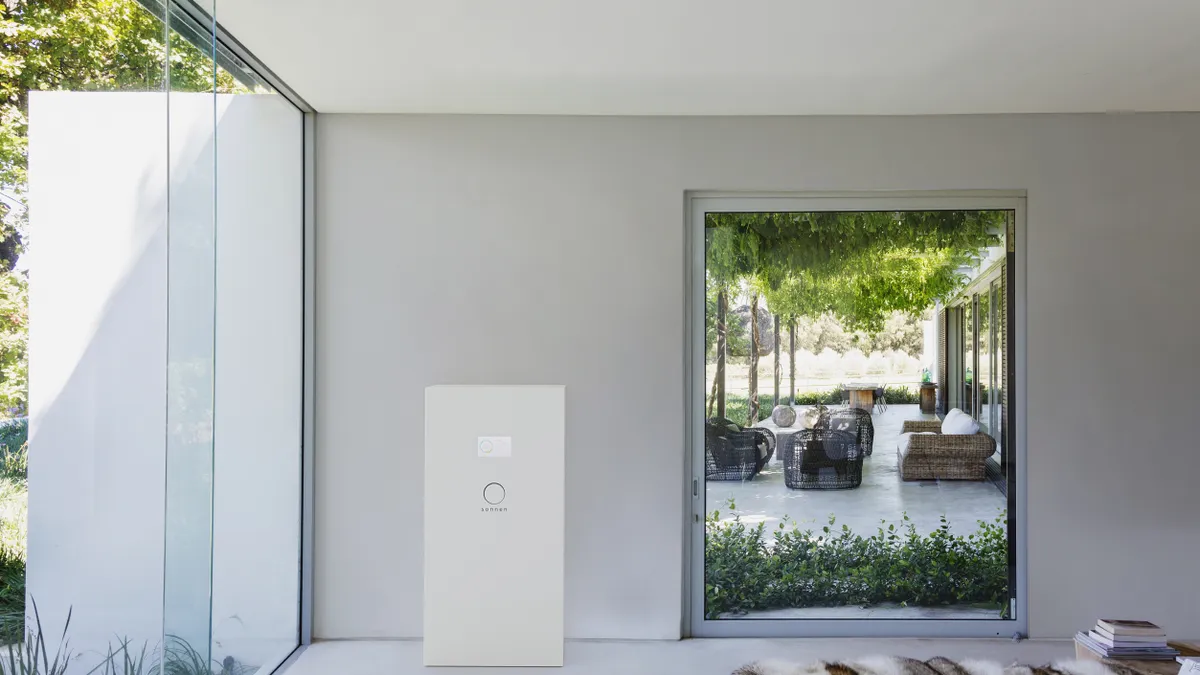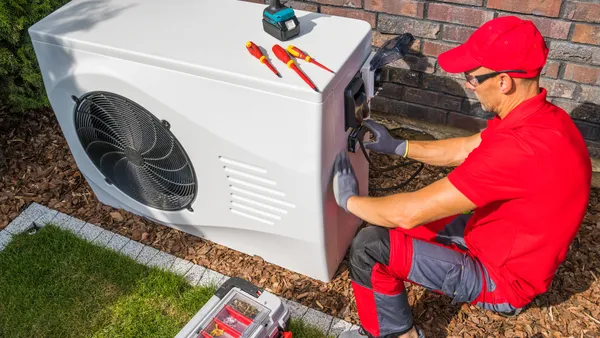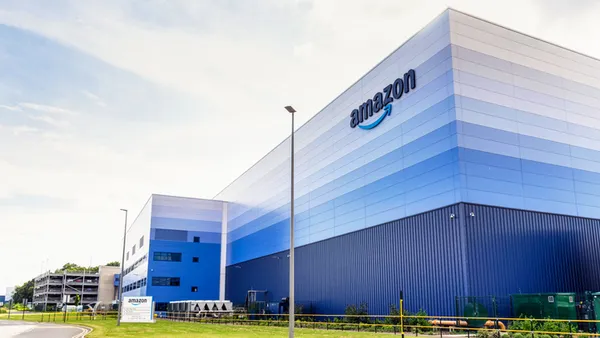Dive Brief:
- Itron and Sonnen on Wednesday announced they have integrated their respective products to create a residential battery system that will store and discharge energy to keep electric bills low and maximize the use of solar energy.
- The completed product will utilize the "sonnenBatterie eco" of which there are 30,000 installed worldwide. The system can be configured in a variety of ways and offers a usable capacity of 4 kWh to 16 kWh, in 2 kWh steps.
- The residential storage market is growing rapidly; just a week ago Switzerland-based ABB rolled out a similar energy storage solution for residential consumers that offers modular capacity increases, a high-voltage battery for greater efficiency, and flexibility in how the system is installed.
Dive Insight:
Utilities are increasingly turning to distributed resources and consumers are showing a growing interest in grid-tied energy storage. This newest wave of products is focused on utilizing as much cheap, preferably clean and possibly self-generated energy as possible, while also allowing people to customize to their system needs.
The sonnenBatterie eco has a maximum capacity of 16 kWh, and can be installed in 2 kWh steps. By comparison, ABB's new REACT 2 inverter and energy storage product can be installed in capacities of 4 kWh, 8 kWh and 12 kWh.
Itron plans "to partner with several other similar DER vendors so that utilities can access a broad portfolio of DER. ... Integration of this technology is critical to helping both utilities and consumers," Steve Hambric, Itron's vice president of distributed energy management, said in a statement.
The trend in residential storage has been towards grid-tied systems, which allow customers to participate in a variety of demand response programs, According to GTM, in 2016 more than 4,400 residential battery systems were deployed representing 127 MWh, 86% of which were off-grid or grid-independent backup devices. However, by the end of last year, the firm anticipated grid-connected deployments to comprise 57% of the residential market.
By 2022, that number could climb to 99% according to GTM, as off-grid and grid-independent backup deployments are expected to remain relatively flat.
Iron said it is already working with Sonnen on a pilot in California "to manage the unique load shapes created by increased deployment of DER." The program will focus on forecasting and automatic operation of distributed resources.















